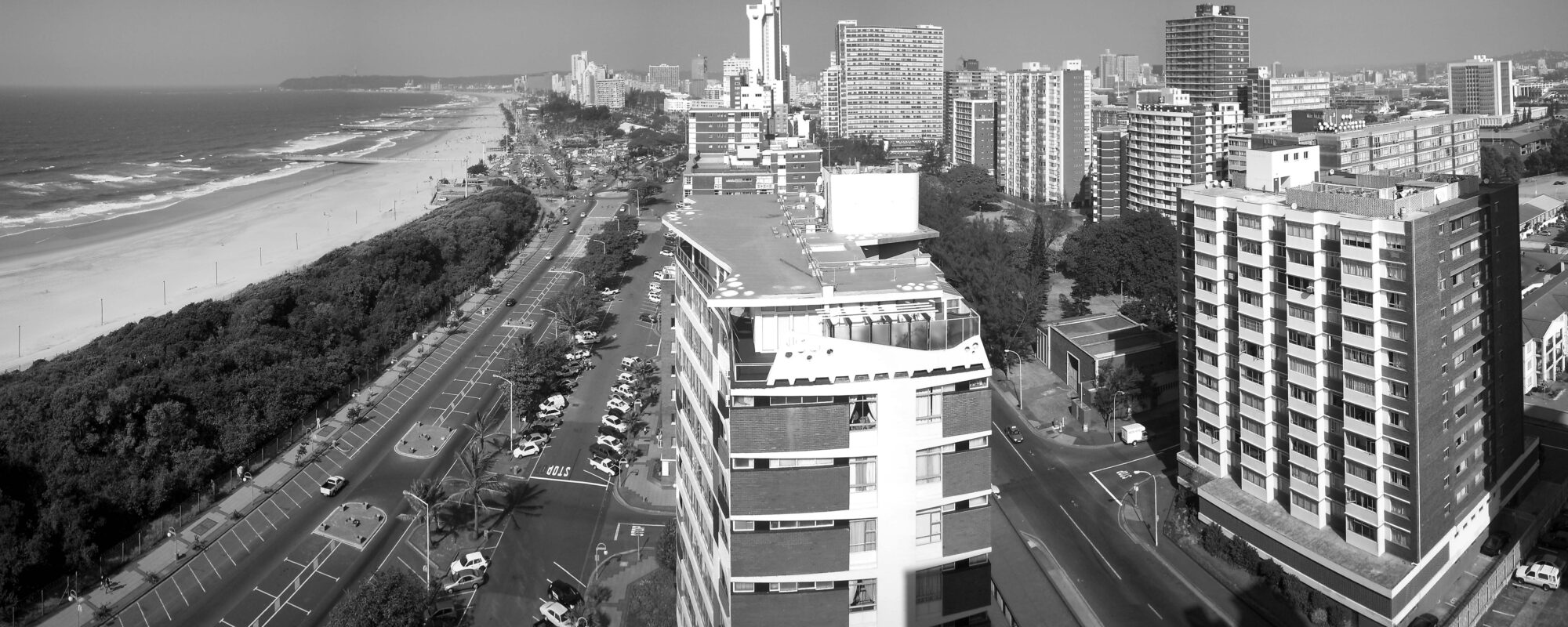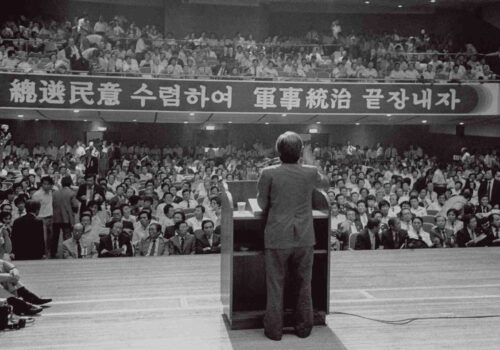 When Sharon Griffin Doorasamy traveled to South Africa for her ICWA fellowship (1994-1996), she had been a feature writer and contributing columnist on African affairs at the San Diego Union-Tribune. Post-fellowship, she produced and edited books on world history and civil rights movements for young adults. Sharon is now a writer in the North Carolina law office of Alan Doorasamy, chronicling the stories of undocumented immigrants seeking to become lawful residents or citizens of the United States.
When Sharon Griffin Doorasamy traveled to South Africa for her ICWA fellowship (1994-1996), she had been a feature writer and contributing columnist on African affairs at the San Diego Union-Tribune. Post-fellowship, she produced and edited books on world history and civil rights movements for young adults. Sharon is now a writer in the North Carolina law office of Alan Doorasamy, chronicling the stories of undocumented immigrants seeking to become lawful residents or citizens of the United States.
Sharon’s fellowship work focused on the Zulu and role of nongovernmental organizations. In this May 1996 dispatch from Durban, she subtly blends trifling quotidian details with the momentous events of South Africa’s Truth and Reconciliation Commission, and reflects on her own condition.
A knock at the door came at 12:30 p.m. sharp. I opened it, and there stood Thelma.
She arrived to clean the flat, not mine but a neighbor’s. The neighbor couldn’t be there, so I agreed to let Thelma inside and, I suppose, supervise and watch over her as she worked.
I know Thelma. Actually, what I mean to say is that she cleans here at Eden Heights, the apartment building in which I live. I recognize the faces of almost all the black women cleaning in the building. In fact, all the cleaning women are black. They start work at 7 a.m. Soon after their start time, they collect trash from bins located on each floor of the high-rise. I recognize the rattle of the bins; it’s almost like a morning wake-up call. The women break for lunch between 12:30 p.m and 1:30 p.m. and they finish at 4 p.m.
Thelma is assigned to clean the 13th floor; my flat is 1302, so I see her more often. My neighbor told me that Thelma is unmarried and has no children. “But she supports and takes care of her sister’s children,” the neighbor said. “At the end of every month, she goes to see the children in Zululand… takes home a mere pittance to them.”
Thelma walked past me, gave a quick “hello,” and took off a pair of brown leather sandals before heading for my neighbor’s kitchen. She was dressed in the standard blue uniform that all maids in South Africa wear. In the kitchen she pulled Handy Andy, Vim and other cleaners from a cabinet underneath the sink.
My eyes fixed on the shoes. They looked identical to a pair my mother bought me when she visited last summer. I remembered that we found them at a trendy shop at a Point Road shopping mall called The Wheel. They cost Rl10 (then about $35). I threw them away more than three weeks ago.
I flopped down in a soft chair and, after a split second or so, my attention turned from the sandals. I listened to a mother on the radio give testimony before the Truth and Reconciliation Commission. The tearful mother described how she felt when she set eyes on the charred body of her son, who was allegedly burned to death by rival political activists on July 26, 1985. “I was unable to control myself,” the mother said.
The Truth and Reconciliation Commission was created by an act of parliament, namely the Promotion of National Unity and Reconciliation Act. The main objective of the commission is that it will help heal deep hurts of the past. It is further hoped that all South Africans will emerge cleansed and purged of past political hostilities, creating an environment conducive for reconciliation.
In the background, I could hear Thelma washing the tub. Every few seconds, too, I kept thinking about the sandals.
How could Thelma afford to buy those sandals?
Maybe the woman earns enough to buy sandals that cost Rl10.
Maybe she bought them on sale.
Maybe, they’re my shoes. Surely, Thelma didn’t dig them out of the trash. Can’t be!
I was distracted by the voice on the radio, which broke down. The mother sobbed and choked on words that described her son and another student allegedly burned to death with him. “They were pitch-black” she said. “Their faces were unrecognizable.”
I could now see Thelma out of the corner of my eye. She had finished cleaning the bathroom and was busy straightening up the bedroom, sweeping the carpet and folding clothes strewn all over the bed. I rose from the chair, turned up the volume on the radio and walked to the kitchen to prepare lunch for Thelma.
As I made the sandwich, thoughts filled my head: It was as if my mind were a boat taking on more water than I could possibly bail out. Thelma popped into my mind. There she was mopping hallways, waxing the lobby floor, wiping the outside of apartment windows, hauling the garbage that residents place in bins.
Mixed with the image of Thelma was an image of my mother’s hands. Her hands cleaned other people’s houses and took care of other people’s children. So did my mother’s sisters, my aunts; my mother’s aunts, my great aunts; my mother’s grandmothers, my great grandmothers. I thought of myself, female cousins, and the fact that we are the first generation of women in my family’s 200 years in America not to have worked as either domestics or nannies.
I thought about my great-great-great-grandmother, Lucinda, a slave. I found her bequeathed in a will dated 1855 to the children of her “madam.” Lucinda was 70 years old. What if there had been a Truth and Reconciliation Commission during America’s period of Reconstruction, I pondered. What if America had experienced “a spiritual cleansing,” lent its ear to the voices of collective anguish, no matter on which side one stood? What if Lucinda’s owners had acknowledged that it was wrong to enslave her and said, “We’re sorry.” And what if Lucinda had answered, “Apology accepted.”
What if together, they’d sat down and worked out a way to help each other to move forward as people and as members of a common society with a common destiny? Maybe then blacks and whites would not be so bitterly divided on so many issues in America after all these generations. If only we had buried our past and reconciled, there wouldn’t be so much dissension among American people today.
I turned and walked back to the chair but paused near the sandals. I wanted to pick them up, examine them, see if they were mine. But I also felt sneaky.
What difference did it make if the woman pulled the shoes from the garbage bin? If they’re my old sandals, the sole underneath the right toe will be worn down. I listened to hear if Thelma remained on her knees, scrubbing. Then I picked up the right shoe.
The mother on the radio asked the Commission for two things: to use its powers to probe how her son died and for money to bury him. “I should have some money so I can make a dignified funeral for my child,” she wept.
Thelma scurried to place three mats back on the clean kitchen floor. I glanced at a clock on the wall and saw that it was exactly 1:30 p.m., time for her to leave this sideline job and get back to her main one.
Hurriedly, she placed her right hand on the back of a dining room chair to balance herself while putting the brown leather sandals on her feet. I handed her the lunch I’d made and R10. She slightly lowered her head, thanked me and left swiftly through the door.
As I watched her dash down the passageway, the boat that was my mind overflowed. I then realized that I could have been in Thelma’s shoes—as she is now in mine.
Top photo: Durban, South Africa beachfront in 2006 (Chris Bloom, Wikimedia Commons)




